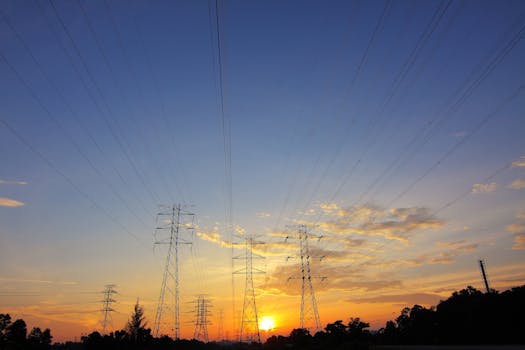Best Solar-Compatible TVs – Harness Renewable Energy for Streaming
Imagine a world where your binge-watching sessions are powered by the sun. No more guilt about energy consumption, just pure entertainment fueled by clean, renewable energy. This dream is becoming a reality thanks to advancements in television technology and the increasing affordability of solar power systems. Solar-compatible TVs aren’t a specific type of television, but rather any TV that can be efficiently powered by a solar energy setup. This means choosing energy-efficient models and understanding how to integrate them into your home’s solar power system. Choosing the right TV and pairing it with a suitable solar setup can drastically reduce your carbon footprint and potentially save you money on your electricity bills in the long run. This guide will explore the world of solar-compatible TVs, helping you make informed decisions to enjoy guilt-free entertainment.

With rising energy costs and growing environmental concerns, switching to solar power is becoming increasingly attractive. Combining this with energy-efficient electronics, like your television, can significantly impact your overall energy usage. This isn’t just about choosing a TV with a good energy rating; it’s about understanding how to maximize your solar energy usage to power your home entertainment system. Whether you’re a seasoned solar user or just beginning to explore the possibilities, this article will provide valuable insights into selecting the best solar-compatible TVs and optimising your setup for maximum efficiency and enjoyment.
Choosing the Right Solar-Compatible TV
Energy Efficiency Ratings
The first step in selecting a solar-compatible TV is understanding energy efficiency ratings. Look for TVs with Energy Star certification, indicating they meet specific energy consumption standards. The higher the rating, the less energy the TV uses, maximizing your solar power’s effectiveness. Paying close attention to these ratings is crucial for optimizing your solar setup and minimizing your reliance on grid electricity.
Beyond Energy Star, consider the TV’s power consumption in watts. Lower wattage translates to lower energy usage, further reducing your reliance on the grid. While a higher resolution and larger screen size may be tempting, they often come with increased power demands. Balancing your desired features with energy efficiency is key to selecting a truly solar-compatible television.
Remember, even small differences in wattage can accumulate over time, impacting your overall energy usage and the strain on your solar power system. Investing in a highly efficient TV is a worthwhile investment that will pay off in the long run through reduced energy bills and a smaller carbon footprint.
Screen Size and Technology
While a large screen might seem appealing, consider its energy consumption. Larger screens generally require more power. Choose a size that suits your needs and space while minimizing energy usage. A smaller, more efficient screen can significantly reduce the load on your solar system.
Different display technologies, like OLED and LED, have varying energy requirements. OLED TVs are known for their excellent picture quality but can consume more power than some LED models. Researching the specific technology used in a TV can help you make an informed decision based on your energy priorities.
Balancing screen size and technology is essential for finding a solar-compatible TV that meets your entertainment needs and your energy efficiency goals. Consider the trade-offs between picture quality, size, and energy consumption to make the best choice for your specific situation.
Smart TV Features and Power Consumption
Smart TVs offer convenient features like streaming and internet connectivity, but these functionalities can contribute to higher energy consumption. Be mindful of the features you use and consider turning off unused features to conserve energy. Many smart TVs offer power-saving modes that can further optimize energy usage.
When not actively watching TV, consider turning it off completely rather than leaving it in standby mode. Even in standby, TVs consume a small amount of energy, which can add up over time. Developing mindful usage habits is essential for maximizing the efficiency of your solar-powered entertainment system.
By being aware of the energy consumption of smart features and adopting energy-saving practices, you can significantly reduce your TV’s impact on your solar power system. Small changes in usage habits can make a big difference in the long run, helping you maximize the benefits of your renewable energy setup.
Integrating Your TV with Your Solar Power System
Battery Storage for Evening Viewing
For optimal evening viewing, a robust battery storage system is crucial. This stored solar energy allows you to power your TV even when the sun isn’t shining. Choosing the right battery capacity is essential for ensuring uninterrupted entertainment during peak evening hours.
The size and type of battery you need depend on your TV’s energy consumption and your overall household energy needs. Consult with a solar energy specialist to determine the optimal battery solution for your specific setup. Proper battery sizing is critical for maximizing the effectiveness of your solar-powered entertainment system.
Investing in adequate battery storage is a key component of a successful solar-powered entertainment setup. It ensures you can enjoy your TV without relying on grid electricity, even after sunset, maximizing the benefits of your renewable energy investment.
Optimizing Your Solar Panel Setup
The efficiency of your solar panel setup directly impacts your ability to power your TV. Ensure your panels are positioned for maximum sun exposure throughout the day. Regular maintenance and cleaning can also optimize their performance.
The number of solar panels you need depends on your overall energy consumption, including your TV usage. A professional solar installer can help you determine the right number of panels to meet your specific energy demands. Properly sized and positioned panels are crucial for maximizing your solar energy harvesting potential.
Optimizing your solar panel setup is essential for maximizing the energy you generate and ensuring you have enough power to run your TV and other appliances. Regular maintenance and proper positioning are crucial for ensuring your panels operate at peak efficiency.
Calculating Energy Consumption and Savings
Understanding Your TV’s Power Usage
To accurately calculate your energy consumption and potential savings, consult your TV’s specifications for its power rating in watts. This information will help you estimate how much energy your TV uses over different periods.
Multiply the wattage by the number of hours you typically watch TV per day to get a daily energy consumption estimate. Then, multiply that by your electricity rate to understand the cost of powering your TV.
By understanding your TV’s power usage, you can more accurately estimate your potential savings when switching to solar power. This information is crucial for making informed decisions about your energy consumption and optimizing your solar setup.
| TV Type | Average Wattage |
|---|---|
| LED | 100-200 |
| OLED | 150-300 |
- Consider the TV’s wattage.
- Factor in daily usage hours.
- Calculate potential cost savings.
Conclusion
Harnessing renewable energy for your entertainment needs is a smart and sustainable choice. By carefully selecting a solar-compatible TV and optimizing your solar power system, you can significantly reduce your environmental impact and potentially save money on your energy bills. Embrace the future of entertainment by powering your viewing experience with clean, renewable energy.

Leave a Reply